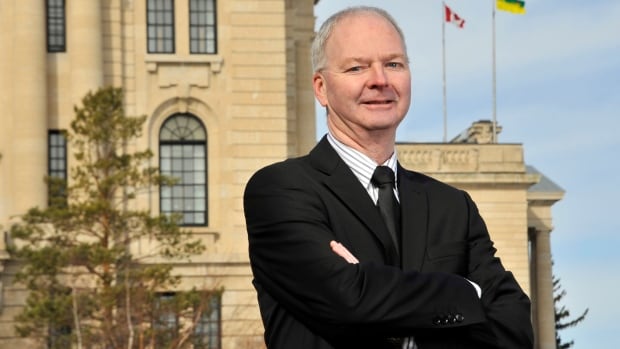
Q&A | Historian busts myths on why Newfoundland chose Confederation
CBC
Even 75 years later, Confederation can still be a hot button issue between friends and family in Newfoundland and Labrador, who still debate the merits of becoming a Canadian province.
Raymond Blake, a professor at University of Regina and co-author with Melvin Baker of Where Once They Stood: Newfoundland's Rocky Road to Confederation, says factors like migration, proliferation of radio, the Great Depression and the Second World War likely influenced voters decision to cast ballots in favour of Confederation.
Blake, who now lives in Saskatchewan, is originally from the now-resettled community of Pushthrough, on Newfoundland's south coast.
Blake spoke with On The Go host Krissy Holmes. This conversation has been edited for length and clarity.
Q: Can you describe the media landscape at that time and how people would have been getting this information?
A: If we just focus on the 1940s, one of the things that's happening is a lot of Newfoundlanders are leaving the fishing boat. There are about 15,000 Newfoundlanders that were fishing before the beginning of the Second World War. And when broke out, there were new jobs because Americans had come here with a number of bases. The British were here. The Canadians were here. And they saw on those bases a different world than they saw growing up.
Many Newfoundlanders who served in the Canadian Forces went overseas and they saw something quite different than they had seen in their small fishing villages or even the larger ones.
And of course we have the advent of radio and people are learning about things through radio. And so, they began to see a different world.
And of course, the big issue that's critical — the National Convention. Elected in 1945, [it] sat for two years and it was broadcast every night that it was in session.
They were hearing debates about the real policy issues of the time. So people were getting this information from many sources.
There's so many dynamics at play here, even the contrast between the rural-urban divide.
When the vote was taken in the final referendum in July 1948, there's a very real split between the Avalon Peninsula and the rest of the island. Even as you move further west on the Avalon, they're more likely to be confederate than they are for the responsible government league.
I think people who live in and around St. John's had a different sense of the Newfoundland nation. They had a different sense of what Newfoundland meant to them.
Religion probably played a role and a number of people have argued that it did. The Irish Catholics voted differently than some of the Protestants who lived in different parts of the country. There are lots of dynamics at play here. And it's never as simple as, "They voted this way because there was one religion and another."





















 Run 3 Space | Play Space Running Game
Run 3 Space | Play Space Running Game Traffic Jam 3D | Online Racing Game
Traffic Jam 3D | Online Racing Game Duck Hunt | Play Old Classic Game
Duck Hunt | Play Old Classic Game











